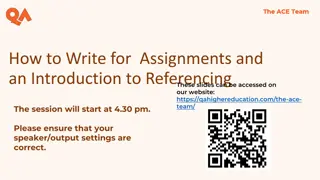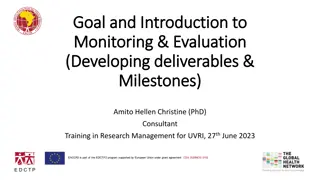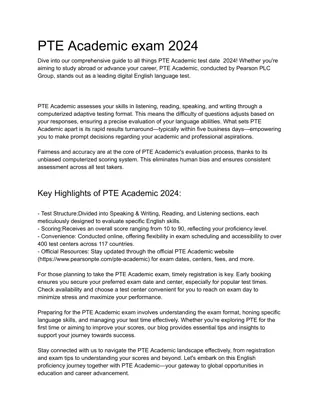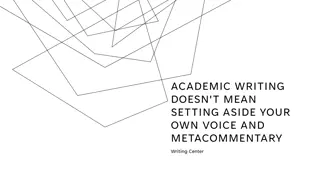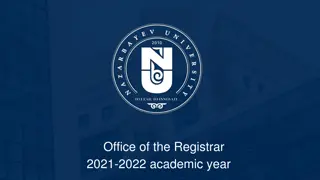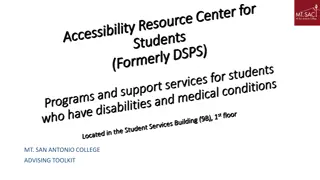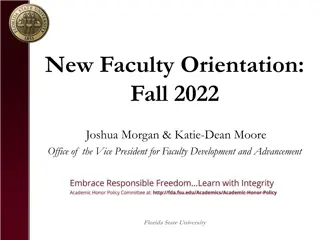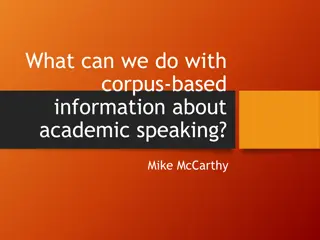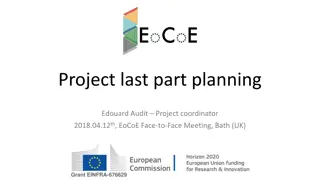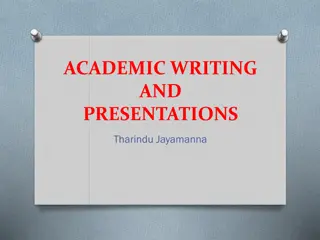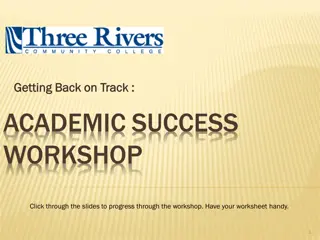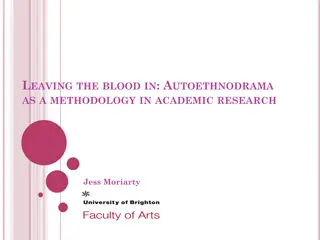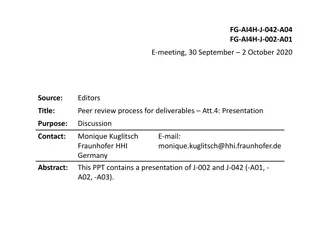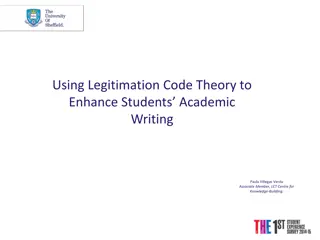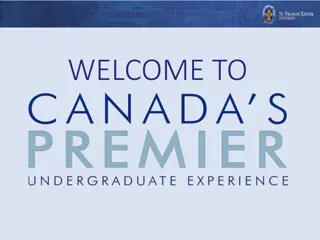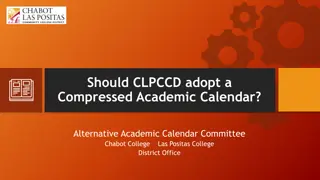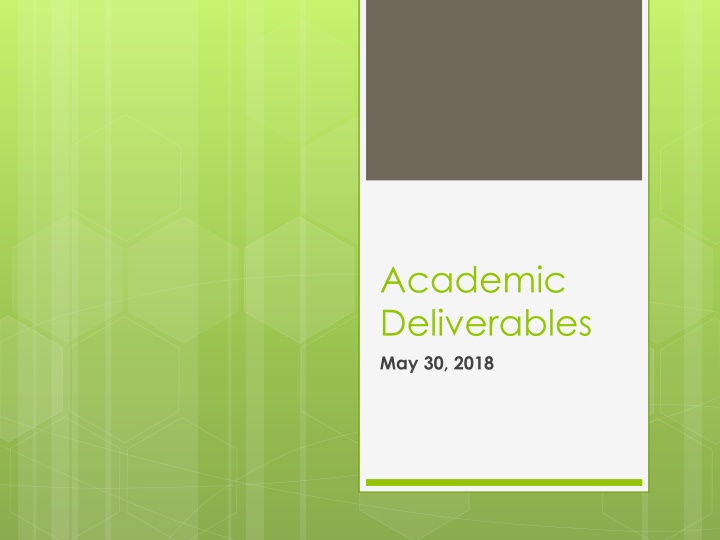
Reflective Journaling for Academic Growth
Explore the importance of reflective journaling in academia, including critical incident approaches and factors influencing the quality of reflection. Discover how self-awareness leads to new perspectives and enhances learning outcomes.
Download Presentation

Please find below an Image/Link to download the presentation.
The content on the website is provided AS IS for your information and personal use only. It may not be sold, licensed, or shared on other websites without obtaining consent from the author. If you encounter any issues during the download, it is possible that the publisher has removed the file from their server.
You are allowed to download the files provided on this website for personal or commercial use, subject to the condition that they are used lawfully. All files are the property of their respective owners.
The content on the website is provided AS IS for your information and personal use only. It may not be sold, licensed, or shared on other websites without obtaining consent from the author.
E N D
Presentation Transcript
Academic Deliverables May 30, 2018
What is your 100% made up of? Non- Graded 50% 50% Integrated Essay Essay Outline Evaluation on Intern s Performance at Workplace Reflective Journal Project Presentation
Reflective Journal (Pass or Fail) Due: June 29, 2018 (Friday)
Cognitive housekeeping . . is process of re-organizing knowledge & emotional orientations in order to achieve further insights (Moon, 2006).
Critical incident approach 1 (Sugarman et al, 2000) Describe your role in the incident. What did you do? How did you react? How did other people react to the incident? Description Analyze the incident. How well/poorly you comprehend to the event? Reaction of you/others are well- informed or based on misinformation? Analysis Overall impact on you. Why the incident critical? How it influenced your feelings? What have you learned? How has your perspective on yourself or on others been affected? Where do you go from this point? Reflection Putting the reflection in bigger context. How can you apply this learning in other aspects of your life? Application
Critical Reflection is NOT A didactic retelling of what happened Only an emotional outlet A time for soap-boxing A neat and tidy exercise that brings closure
What factors determine the quality of reflection? Self-awareness: It enables the learner to analyze feelings It consists of honest examination of how the situation has affected the individual & how the individual has affected the situation. Key features: Ability to recognize & recollect accurately events & key features of an experience An awareness of uncomfortable feelings & thoughts, one has to describe it in writing to enable learning through reflection Outcome of reflection involves the development of new perspective
Integrated Essay Outline (Pass or Fail) Due: July 20, 2018 (Friday) Integrated Essay (40%) Due: August 15, 2018 (Wednesday)
Integrated Essay: Discussion Points Moving from your topic to the thesis statement Integrating academic knowledge with experiential learning What does this really mean? How do I do this? Assessment Criteria Topic vs. Thesis Statement Do s and Don ts Useful Resources Integrated Essay: Effective Essay Writing Video http://www.youtube.com/watch?v=nWqMQ26Gqi4
Integrated Essay: The Big Picture Experiential Learning Academic Knowledge Integrated Essay
Exploring the difference between: Topic vs. Thesis Statement
Setting a Topic CSR CSR platform connecting NGOs and Corp Green policy in HK Impact on Psychological Well-being Community Engagement
Developing a Thesis Statement Question Topic Thesis Statement
What is a thesis statement? Makes an argumentative assertion about a topic; it states the conclusions that you have reached about your topic. Makes a promise to the reader about the scope, purpose, and direction of your paper. Is focused and specific enough to be "proven" within the boundaries of your paper. Is generally located near the end of the introduction; sometimes, in a long paper, the thesis will be expressed in several sentences or in an entire paragraph. Identifies the relationships between the pieces of evidence that you are using to support your argument. S O U R C E R E T R I E V E D 0 2 / 1 4 / 2 0 1 2 : H T T P : / / W R I T I N G . W I S C . E D U / H A N D B O O K / T H E S I S _ D E F . H T M L
Defining Terms Thesis Statement An effective thesis cannot be answered with a simple "yes" or "no A thesis is not a topic; nor is it a fact; nor is it an opinion. Sources retrieved from 30thMay 2017 https://writingcenter.fas.harvard.edu/pages/developing-thesis
Defining Terms Thesis Statement Examples: "Reasons for the fall of communism in Eastern Europe "Communism collapsed in Eastern Europe" is a fact known by educated people. "The fall of communism is the best thing that ever happened in Europe" is an opinion. (Superlatives like "the best" almost always lead to trouble. It's impossible to weigh every "thing" that ever happened in Europe. And what about the fall of Hitler? Couldn't that be "the best thing"?)
The winner is: While cultural forces contributed to the collapse of communism in Eastern Europe, the disintegration of http://writingcenter.fas.harvard.edu/pages/developing-thesis economies played the key role in driving its decline
Topic vs Thesis Statement Please indicate whether each phrase below is a topic or a thesis statement: An analysis of local non-profit organizations in relation to global non-profit organizations CSR is an effective means for corporations to contribute to civil society Hong Kong s democratization efforts Social policy implications of public housing in Hong Kong Governmental subsidies to charities are pivotal for the long-term financial sustainability of its programs and operations
What does it mean to integrate academic knowledge with experiential learning?
Assessment Criteria Ability to integrate academic knowledge and internship experience to support the central argument (i.e. thesis statement) Ability to demonstrate critical analysis of thesis Ability to examine the topic by accessing and analyzing relevant resources Ability to write a well-structured and organized essay with appropriate citations and referencing
INTEGRATED ESSAY Don ts Do not copy and paste your reflective journal into your integrated essay Do not write a purely descriptive essay Do not only include experiential learning without academic knowledge (visa versa) Do not purely list your internship duties Do not use the integrated essay as a thank you piece Do s Do draw on your internship experience as well as research (academic knowledge) in order to support your thesis statement Do use a wide range of resources Do include your internship duties if they are relevant in supporting your thesis statement
Integrated Essay: Useful Resource Moving from your topic to your thesis statement (central argument) The Writing Center at The University of Wisconsin- Madison http://writing.wisc.edu/Handbook/Thesis.html https://writingcenter.fas.harvard.edu/pages/developin g-thesis
Project Presentation (10% + Peer Review) Main Sessions: August 1-3 , 2018 Alternative Session 1: August 16, 2018 Alternative Session 2: September 3, 2018 A designated slot is assigned for interns to present and conduct peer review in Internship Handbook; & ATs as assessors)
Core topic Choose one of the issues covered in the integrated essay, and expand it in the oral presentation You may have done a mini-research of your own interest, feel free to present that You may choose a social issue you have learnt from the internship (e.g., over- [re]development of urban city in Hong Kong) and wish to increase the awareness of the issue among fellow students Or discuss your potential topic with your ATs
Project Presentation Don ts Do s Introduce your organisation Describe your internship tasks Talk about what you have learnt Reproduce your essay Find a focus/ topic that is of interest to all group members Support your arguments by both academic research and quoting your internship observation
Thank you! Q & A
References Brockbank, A., & McGill, I. 2007. Reflection and reflective practice, in Brockbank, A., & McGill, I. (ed.), Facilitating Reflective Learning in Higher Education. England: Open University Press, pp. 85 - 107. Cohen, P. 2010. Empowering reflective ethical engagement in field settings. New Direction for Teaching and Learning, 124: 47 54. Harris, A. S., Bruster, B., Peterson, B., & Shutt, T. 2010. Becoming critically reflective, in Harris, A. S., Bruster, B., Peterson, B., & Shutt, T. (ed.), Examining and Facilitating Reflection to Improve Professional Practice. USA: Rowman & Littlefield, pp. 35 46. Jacoby, B 2017. Workshop Notes on Designing, Facilitating, and Assessing Critical Reflection in Service Learning. Hong Kong Polytechnic University. Kolb, D. A. 2015. Experiential Learning: Experience as the Source of Learning and Development. New Jersey : Pearson Education. Moon, J. A. 2006. Assessing journals and other reflective writing , in Moon, J. A. (eds.), Learning Journals. A Handbook for Reflective Practice and Professional Development. USA & London: Routledge, pp. 107 - 121.

